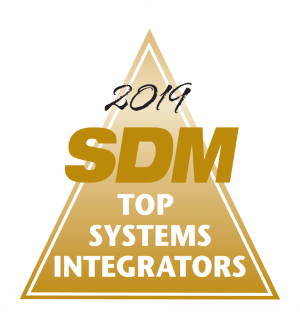The security industry is evolving, and multiple disruptive factors are driving systemic changes. A new research report from the Security Industry Association (SIA) — The Evolving Security Industry: The Adaptation of the Systems Integrator — was created to assess the state of this evolution in early 2024.
Security systems integrators specialize in installing, combining and maintaining physical security systems. They need to adapt to the challenges being brought about via new technologies, business models and external societal factors. This report — produced for SIA by Novaira Insights — looks in more detail at the changes, suggests potential strategies for integrators to adapt and provides the end-user perspective.
In the security industry, we are seeing a rapid acceleration in the trend toward new technologies like artificial intelligence (AI), cloud and Internet of Things (IoT) devices in security, and at the same time, cybersecurity of physical security systems has become a greater concern than ever before. End users are increasingly requiring security systems to ensure the cybersecurity of systems they install and maintain, and the role of the security systems integrator is changing, providing integrators with challenges and requiring them to develop strategies to adapt.
Top challenges faced by security integrators and identified in the report include:
HR challenges and training
The report identifies better training and education of existing security employes and attracting new talent to the industry as top challenges for security integrators today. Additionally, the industry faces general hiring issues and challenges with retaining staff and meeting wage demands.
Potential solutions:
- Offer structured and progressive training programs, particularly covering emerging technologies impacting the security industry.
- Recruit apprentices and qualified professionals from other disciplines, offering them incentives into the industry.
The changing role of the security integrator
Trends such as cloud technology and business models, AI and IoT are disrupting the traditional system integrator role in many areas, including how integrators are involved in system design and installation, maintenance, system refresh, fulfillment, billing and value creation.
Potential solutions:
- Shift from being a systems integrator to a security managed service provider.
- Offer end users a modern, advanced app experience.
Threats from outside industry
Some physical security vendors and manufacturers are already performing parts of the role traditionally performed by security integrators and are likely to be joined in the future by organizations from outside the industry – including big tech organizations, telcos, IT managed service providers, AV integrators and large end users moving more responsibility in house.
Potential solution:
- • Add value beyond the sum of the parts.
- For example, cloud architecture allows for potential integrator value-add to come from their own additions to end-to-end solutions via more standardized cloud integrations.
- Additionally, poor customer understanding of cybersecurity is an opportunity for cybersecurity-related offerings as value-add, billable services.
In addition to diving more into these key challenges our industry is experiencing today, the research report shares exclusive stats and findings on long-term trends critical to the evolution of the security industry, future disruptors and how integrators can succeed and respond to the new market landscape.
The report is free for SIA members and can be purchased by nonmembers. Learn more and access the full research here.





